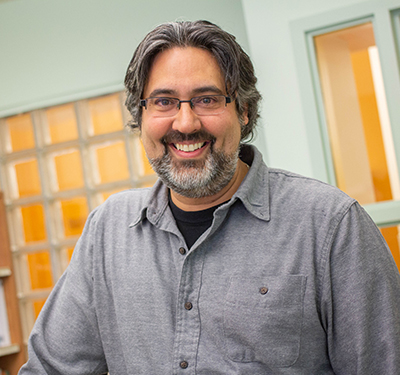
NBHRF Research Chair in Community Health and Aging and Assistant Professor in Gerontology at STU Dr. Albert Banerjee and his research team are piloting a Community Connector program to address social isolation and loneliness among older adults in New Brunswick.
Social isolation and loneliness affect over 30 percent of older Canadians and are associated with a range of negative health outcomes. These are more common among older adults who experience the death of good friends and have difficulties participating in community events because of health and mobility issues.
“A lot of people we spoke to said they could use a little nudge of encouragement and support, and that is what these Connector Programs do,” Dr. Banerjee said.
Their research showed many people do not know about existing programs such as social services and community events. Community Connector Programs help combat social isolation by identifying isolated seniors and connecting them with appropriate services.
An Individualized and Inclusive Approach
One of the project leads, PhD Candidate Lyne Ouellet, looked at similar programs in the United Kingdom and Ontario that were conducted by healthcare professionals. These programs not only catered to hospital patients but community members, which inspired the research team to create a Connector Program in Fredericton that is driven by the community for isolated seniors.
“One interesting thing about Connector Programs are that they respond to the person that you have in front of you,” Dr. Banerjee said.
“It involves having active conversations with people and meeting their needs. For example, if you find out that the person that you're speaking with is lonely but likes to dance, then you can connect them to programs for dancing with seniors.”
Making an Impact through Collaboration
The Connector Pilot Program will collaborate with Meals on Wheels and Age Friendly Fredericton to reach isolated seniors.
“We want to create awareness around the importance of connections and create a toolkit that can support people in initiating these conversations, having these conversations, and creating their own connector programs both here in Fredericton and elsewhere,” Dr. Banerjee said.
"We are also hoping to build a network of community groups who have initiated similar projects or are interested in getting involved so that we can share resources and inspire each other. “
By empowering others to start these conversations, the research team anticipates that this program will serve as an example of how existing services across New Brunswick can be modified to support social connection.
“We hope people can take the knowledge we are creating and introduce their own Connector Programs in their hometowns.”
The Community Connector Program is funded by the NBHRF Research Chair, Mitac and Healthy Seniors Pilot Project and is set to launch in the new year.
-(2).jpg)
/filters:format(webp)/prod01/stuca/media/stu/site-assets/images/features/registration-news-box.png)
/filters:format(webp)/prod01/stuca/media/stu/site-assets/images/features/Sandra-Irving-Web-News-Box.jpg)
/filters:format(webp)/prod01/stuca/media/stu/site-assets/images/Intersession-and-Summer-Session_NewsItem.jpg)